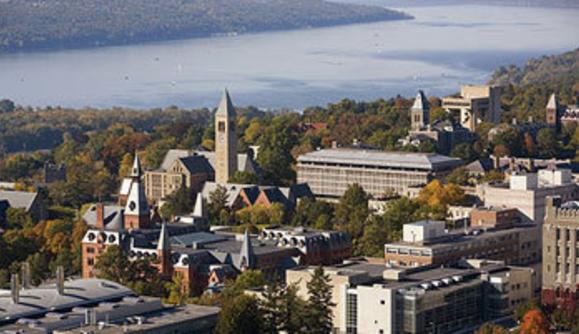Nestled amidst the rolling hills of upstate New York, Cornell University stands as a testament to the power of a unique educational vision. Founded in 1865 by Ezra Cornell and Andrew Dickson White, the university embraced a revolutionary concept – offering an “any person…any study” approach to higher education. This article delves into the core principles that define Cornell, exploring its commitment to interdisciplinary learning, its land-grant mission, and its global reach, all of which have fostered a vibrant academic community and a legacy of groundbreaking research and innovation.
A Beacon of Interdisciplinary Exploration
From its inception, Cornell defied the traditional mold of a university. Unlike institutions focused solely on the liberal arts or technical fields, Cornell embraced a comprehensive approach, establishing colleges dedicated to agriculture, engineering, and veterinary medicine alongside the College of Arts and Sciences. This commitment to interdisciplinary learning continues to be a cornerstone of the Cornell experience.
The university fosters collaboration across disciplines through various initiatives. Undergraduate research programs allow students from different fields to work together on projects, tackling complex challenges from diverse perspectives. Additionally, unique programs like the College of Engineering’s Meinig School of Biomedical Engineering bridge the gap between engineering and medicine, while the Charles H. Dyson School of Applied Economics and Management at the College of Agriculture and Life Sciences blends economic principles with agricultural applications.
This interdisciplinary approach equips Cornell graduates with a holistic understanding of the world and the ability to connect seemingly disparate fields. In an increasingly interconnected world, Cornell’s graduates are well-positioned to tackle complex challenges that require solutions from multiple disciplines.
A Land-Grant Legacy: Knowledge for the Public Good
Cornell was established as a land-grant university, a designation signifying its commitment to public service and practical applications of knowledge. From its agricultural roots to its groundbreaking research in fields like nutrition and environmental sustainability, Cornell has consistently strived to utilize its resources to benefit the public good.
Cornell Cooperative Extension, a network of educators and researchers, translates university knowledge into practical solutions for farmers, families, and communities across New York State. The College of Agriculture and Life Sciences plays a crucial role in agricultural research and development, contributing to advancements in food security and sustainable agricultural practices.
This dedication to public service extends beyond New York State. Cornell Global Health, a university-wide initiative, focuses on addressing global health challenges through research, education, and outreach programs. Cornell engineers develop innovative solutions to clean water scarcity and sanitation issues in developing countries, while medical researchers collaborate with international partners to combat infectious diseases.
A Global Hub for Innovation
Cornell University’s influence extends far beyond its picturesque Ithaca campus. The university boasts campuses in Doha, Qatar, and a robust network of international partnerships, fostering collaboration and exchange of knowledge across geographical boundaries.
Cornell Tech, a graduate school situated in New York City, focuses on technology, entrepreneurship, and innovative problem-solving. This urban campus fosters an environment where students and faculty tackle real-world challenges in areas like artificial intelligence, blockchain technology, and sustainable urban development.
This global reach allows Cornell students to gain international experience, collaborate with peers from diverse backgrounds, and contribute to solutions with a global impact. Cornell alumni are leaders in various fields across the globe, making a difference in areas like international relations, scientific discovery, and technological advancement.
A Tapestry of Diverse Voices
Cornell recognizes that a vibrant intellectual community thrives on diversity. The university actively recruits students from across the United States and around the world, ensuring a rich tapestry of backgrounds, experiences, and perspectives. This inclusivity fosters a dynamic learning environment where students learn from and challenge one another, leading to a more comprehensive understanding of complex issues.
Cornell also boasts a strong tradition of student activism and social engagement. Student organizations advocate for social justice issues, organize cultural events, and promote inclusivity within the university community. This commitment to creating a welcoming and enriching environment for all students allows Cornell to attract the brightest minds, regardless of background.
A Legacy That Continues to Grow
As Cornell University looks towards the future, it does so with a rich legacy of interdisciplinary learning, public service, and global engagement. The university remains committed to its core principles of “any person…any study,” fostering a vibrant intellectual community where students can explore their passions and make a difference in the world. With its unwavering dedication to academic excellence, groundbreaking research, and positive social impact, Cornell University is certain to continue its trajectory as a global leader in higher education for generations to come.
